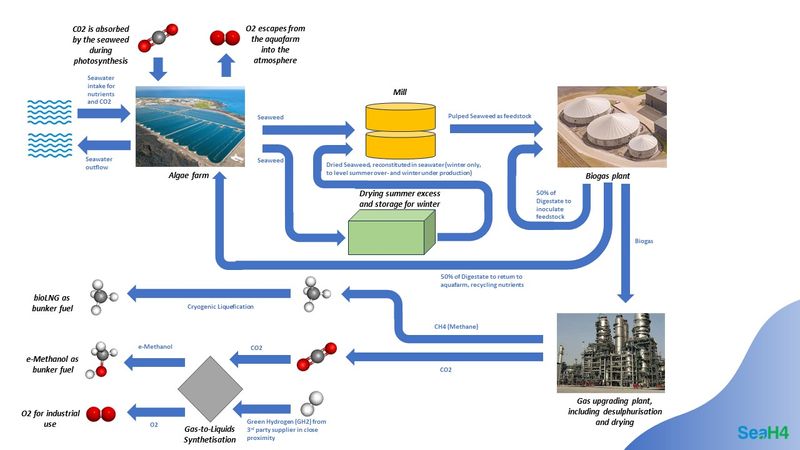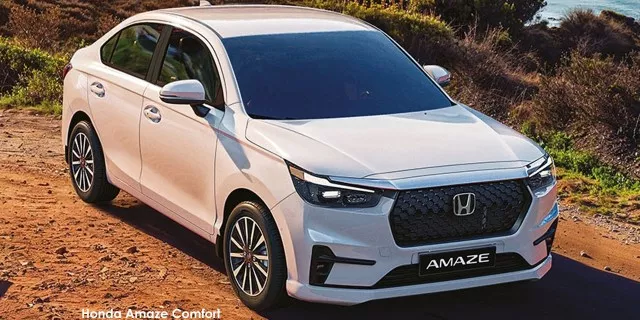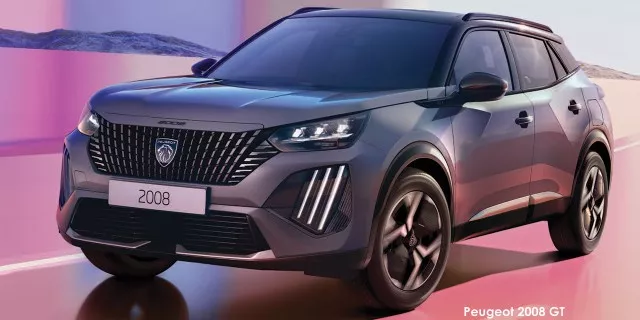
South African company SeaH4 has won an international innovation award for turning seaweed that it grows in small ponds on local soil into eco-friendly fuel.
The company’s mission is to neutralise emissions in the hard-to-abate sectors of shipping and aviation through the production of bio-LNG (liquefied natural gas) and e-methanol.
In the future, it also aims to bring e-fuels to the road transport sector in Africa as it believes large parts of the continent will not switch over to fully-electric transport any time soon and will therefore require alternative propellants to power their vehicles to achieve decarbonisation goals.
The start of something big
SeaH4 founder, Johannes Bochdalofsky, told Cape Talk that the company uses non-arable lands, in other words, land that can not be used to grow crops or keep animals, close to the country’s coastlines to harvest seaweed in small man-made ponds.
In turn the vegetation is transformed into biogas, which can be upgraded into bio-LNG and biogenic CO2, which together can produce carbon-neutral e-fuels.
SeaH4 grows the seaweed itself instead of sourcing it from the country’s coastal regions as it wants to avoid tampering with existing and often sensitive ecosystems, and the naturally produced seaweed doesn’t have the density needed to develop biofuels, said Bochdalofsky.
Utilising arid instead of fruitful lands also does not impact the country’s food production like many other e-fuel methods that require agricultural biomass.
Another benefit is that SeaH4’s proprietary technique is immune to droughts and does not burden the country’s fresh-water system, as the company pumps salt water into its ponds and later back to the ocean once used.
Furthermore, it can collect as much seaweed as it needs on a day-to-day basis from its own farms instead of having to stock up on biomass once a year during harvesting season and strictly limit consumption thereof until the following year.
Staying on dry land opens up employment opportunities for more people in small communities, too.
“Anything out on the water is typically capped for men to work because women oftentimes have children at home and the like, and when you’re stuck out on a boat, you can’t just rush home if school is finishing early or something like that,” said Bochdalofsky.
“So going to land actually opens up the economic opportunity to everyone.”
Apart from these unique traits, Bochdalofsky says the company’s approach is similar to other bio-fuel producers, except, “instead of growing a field of crops and throwing the crops into the biogas digesters, we’re growing seaweed and we harvest that to put into the tanks.”
For now, one of the biggest challenges SeaH4 faces is to produce enough volume of its alternative fuels to convince the shipping and aviation industries that it is worth the investment to put the necessary infrastructure in place.
The European Union is showing the most interest in its product as a result of recent legislative changes that encourage decarbonisation in emission-heavy sectors, however, the company also wants to expand to the African continent and a wider range of industries.
“Ultimately, we do want to produce fuels for African road transport because I believe that at least non-urban areas will not electrify their transport,” said Bochdalofsky.
“This is really where we want to go, but in order to make that an investable business case we first have to go through these other industries.”
SeaH4 is currently busy setting up its first field test facility in Saldanha on the west coast of South Africa where it will examine the feasibility of producing bio-fuels at scale, which will require “hundreds of tonnes of seaweed per day.”
Still in its infancy, the innovative business is also fielding interest from investors who would be able to bring financial support to its mission.
Bochdalofsky and his partner have been funding SeaH4 out of their own pockets for the last four years, so “every bit counts,” he said.










